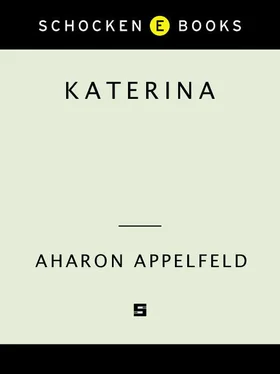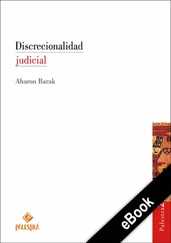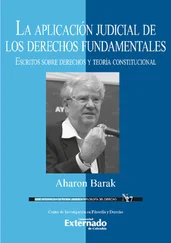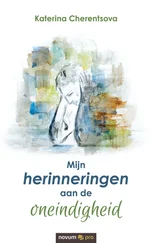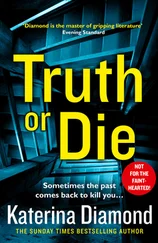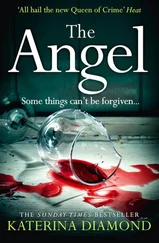When I left the village he had just been born, but I heard a lot about him, not always favorable gossip. After years of bachelorhood and wild living, he had married. The bride was pretty and rich and she brought a considerable dowry, but she wasn’t faithful. They said that was his punishment because he had deceived so many women, but she too was punished for her infidelities: A swarm of hornets attacked her in the middle of a field and killed her. For once it seemed as though reward and punishment had been meted out in this world, but who am I to judge about that mysterious balance.
Every Thursday, Chamilio comes and brings me my food. God knows how he finds his way. To my mind he’s an otherworldly creature. Without him I would be lying in the dust.
“Thank you, Chamilio,” I say loudly. I doubt whether he can hear me. In any case, he makes a small grimace as though driving away a thought. When I put something in his big palm, he bangs on the floor with his thick staff, muttering something, then leaves. His clothes give off the smell of grass and water. He apparently spends most of the day outdoors.
“How are you?” I ask him, and immediately see the stupidity of my question. He does his work quietly and steadily. First he arranges the supplies in the pantry, and then he brings in chopped wood and lays it near the stove, everything done quietly and diligently. For about an hour he works. In that hour he fills my hut with the aromas of the fields, a perfume lingering with me all week long.
I love to sit and follow him with my gaze as he walks away, a slow departure that sometimes lasts a full hour. First he goes down to the chapel, prostrates himself at the threshold, and prays. Sometimes it seems to me that I can hear his silence. Suddenly, he rouses himself, without fuss, as though turning his back, rises, and walks down to the lake. Near the lake, his strides halt and his feet stop.
Sometimes it seems to me that he tarries in order to inhale the smell of the water. In this season the lake water has a fragrance. He does indeed approach the edge of the lake, bends over, but doesn’t linger, and immediately slips down the path and is swallowed among the trees.
When he disappears among the trees, he appears before my eyes again with a different kind of clarity, sturdy and handsome, and I begin to miss him. The darkness makes me forget him all at once, and only on Thursday morning does his warm odor enter my nostrils, and I remember him, and a tremor of expectation runs down my back.
On most days I sit in my armchair, a wooden armchair upholstered with thick cushions. The years have not harmed it; it still takes pity on a person’s bones. Here my mother used to sit on Sundays, her eyes shut, all the week’s weariness stamped on her face, her hair thin and gray. Now I am forty years older than she was. The tables have turned—the mother is young and the daughter is aged, and that, it seems, is how things will remain forever. When the dead are reborn, she will certainly be astonished: Is this my daughter, Katerina? Nevertheless, when I pray for my life I also pray to her. I’m certain that our mothers protect us, that without them and their virtues, the wicked would long since have done away with us.
Most of the day I sit and gaze out. Before my eyes the lake flickers in its brilliant hues. In this season its light is dazzling. Once, abundant life rustled here, and now there is only silence. When I listen to the silence, distant sights rise up from the meadows and fill my eyes. Yesterday, I had a very clear vision. I was three and sitting in the pasture and our shepherd dog, Zimbi, was licking my fingers. Father was sitting under a tree, slowly getting drunk from a bottle of vodka, happy and content. Father, I call out for some reason. He’s so immersed in his drinking, he doesn’t answer. I sob and cry, but my sobbing doesn’t move him from his place. Mother bursts out of the house like a storm wind, and I immediately fall silent.
My mother, of blessed memory, was an unfortunate woman and we all dreaded her, even my sturdy father. Not even the cows dared defy her. I remember how, with her bare hands, she once subdued a crazed cow. Her hands, God forgive me, scar my body till today. She would beat me for everything, serious or trifling, with fury and without mercy. Easter was the only time she wouldn’t beat me. At Easter her face would change, and a silent awe came into her eyes, like a fast-flowing river whose waters grow placid. At Easter her face would radiate light throughout the house: a kind of piety that didn’t belong to this place.
I would spend Easter on a ledge, next to Zimbi. I treasure Zimbi’s memory with pleasant warmth. He was a sturdy dog. He liked people and especially children. If there is any warmth in my body, it is the warmth I absorbed from him. His odor still clings to my nostrils. When I left the house he whimpered bitterly, as though he knew I wouldn’t come back to see him. For me, he still lives, especially his barks, restrained barks, that always sounded to me like friendly greetings. My soul cleaved to his, if I may say. Since my return, I sometimes hear his whimpers, and I miss his round, soft body, his silky fur, and the smell of the river that clung to his paws.
My mother also loved Zimbi. But her love was different, hemmed in, without contact. But that mute creature apparently sensed that this unfortunate woman had a feeling for him, and he would jump toward her with affection. He was deathly frightened of my father. Sometimes I sense that I am tied to my late mother through Zimbi’s body. Our love for Zimbi bound our souls together with a hidden force. Only God knows the secrets of the heart, and only God knows what joins us together in life and death.
Right after Easter, the light in her face went out and anger would cloud it again. When I was still little, I heard people say: “She’s very unfortunate. She must be pitied. Her offspring died as infants.” I was certain that the angel of death would not pass over me. Every night I would pray for my life. And, wonder of wonders, the prayers worked, and my life has been prolonged beyond man’s allotted span.
My mother died very young. Her face is as clear to me as on the day she left us. I especially see the angry swing of her long arms. Even today, many years later, I remember her with fear and trembling, as the Scriptures say. Every time I think about her, she comes toward me with rage. Why, Mother, I ask, are you angry at me? I have already been punished for my sins, and I shall be whipped for my transgressions in the world of truth. But my mother is obstinate. She is very young, and she will stay young for all eternity. If she had lived as long as I, her blood would have been calmer. At my age, no one gets angry any longer.
Sometimes it seems to me that she bears us all a grudge because we buried her in the ice. The cemetery was barren and white, and the two gravediggers carved out her plot with axes. The people stood at a distance from the pit and shivered. The priest fumed at the gravediggers for their laziness, for not preparing the trench in time. The priest’s face was gray, and he urged the gravediggers on with mumbled words that sounded like curses.
Afterward, in the dark already, the prayers dropped like hail. I wrapped my head in a kerchief to avoid seeing the coffin lowered into the pit on ropes, but the cold penetrated to my bones anyway, and I feel it to this very day.
Right after Mother’s death, Father sank into heavy drunkenness. He neglected the house and farm, sold the embroidered cloths and even my mother’s dowry chest. Now I became afraid of him, as though he were a stranger. He would return home late at night and immediately collapse onto his bed like a corpse. He slept most of the day, stirring only toward evening, and without delay, he would head for the tavern.
Читать дальше
